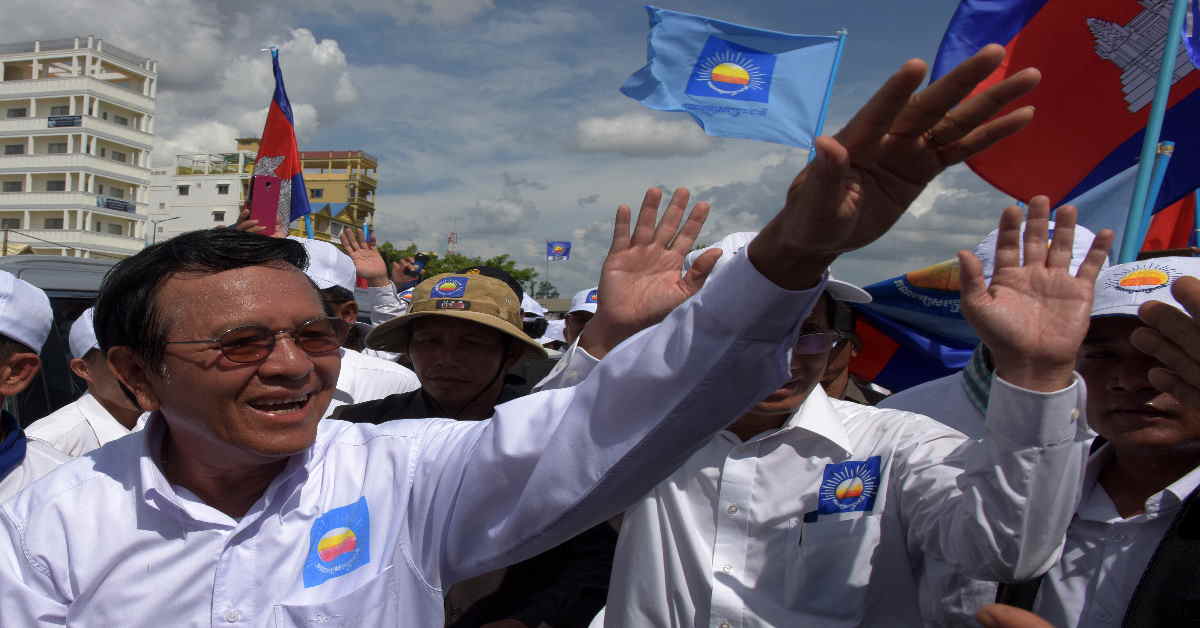Nearly seven decades after Cambodia gained independence from France, its people are still struggling for the right to determine their future. But today, it is not an outside power that is stealing Cambodians’ autonomy, but their own authoritarian government, led by Hun Sen, the world’s longest-serving prime minister. He must be stopped, and this month I will return to my home country to help make that happen.
Hun Sen, a former member of the Khmer Rouge – the group responsible for killing nearly a quarter of Cambodia’s seven million people between 1975 and 1979 – understands only one kind of governance: strongman rule founded on violence and intimidation. So, for 34 years, he has been working to transform Cambodia’s democracy into a dictatorship, with the aim of handing over control to one of his sons.
To this end, Hun Sen has systematically dismantled opposition forces – in particular, the Cambodia National Rescue Party (CNRP). As Cambodia’s first united democratic opposition party, the CNRP, which Kem Sokha and I founded in 2012, terrifies Hun Sen, because it is the only party capable of providing an alternative to his dictatorship.
This became clear in the 2013 general election and the 2017 communal elections: in both cases, the CNRP won nearly half of the vote. Add to that a 2016 opinion poll indicating even higher levels of support for the CNRP, and Hun Sen knew that he had to take drastic action to retain his grip on power.
In September 2017, Hun Sen had Kem Sokha, the CNRP’s president, arrested on politically motivated charges. He spent a year in prison, and remains under house arrest without trial, in violation of Cambodia’s constitution. Many other opposition figures have been arrested, harassed, or beaten up; some, including me, have been forced into exile.
In November 2017, a court officially disbanded the CNRP, on executive orders. This cleared the way for Hun Sen’s Cambodian People’s Party (CPP) to make a clean sweep in the 2018 general election. With no genuine opposition, the sham vote gave the CPP every seat in the national assembly.
A more blatant violation of the 1991 Paris Peace Agreements, which ended Cambodia’s brutal civil war and prescribed a pluralistic democratic system, would be hard to imagine. And yet the crackdown on opposition has continued with impunity. A free and independent press is no more.
Hun Sen’s dictatorship has also put the economy in serious danger. Cambodia is now at risk of losing its tariff-free access to the European Union (EU) market, provided through the bloc’s Everything but Arms trade regime, and to the United States (US) market, as a beneficiary of the Generalized System of Preferences.
Either loss, let alone both, would devastate Cambodia’s economy. China, burdened by its own economic and political problems, cannot be expected to pick up the slack. Hundreds of thousands of jobs would be lost. The outlook for Cambodia’s overwhelmingly young population would become even bleaker.
But Cambodia’s exiled opposition is fighting back. On 9 November, we will return to our country to demand that Hun Sen change course. Not surprisingly, he and his inner circle are furious about our plans, claiming that they amount to a coup attempt. But it is their own policies that are jeopardising their rule.
Political freedom and economic prosperity go hand in hand. And history shows that damaging economic developments can fuel social and political unrest, even under a harsh authoritarian regime. The 2011 Arab Spring uprisings, which were triggered by rising wheat prices in Tunisia, are a case in point.
If Hun Sen cannot grasp the threat posed by the loss of Cambodia’s major export markets to the economy – and, indeed, to his own regime – he should make way for someone who does. He must not allow Cambodia, scarred by past violence, to descend once again into bloodshed.
Cambodia is undoubtedly capable of nonviolent conflict resolution. Unlike many other former European colonies, we achieved independence peacefully, through a negotiated agreement. With genuine political will on all sides, that success can be repeated today.
This requires, first and foremost, the release of Kem Sokha, the reinstatement of the CNRP, and a (relatively short) timetable for a free and fair national election. But, far from supporting a peaceful resolution to Cambodia’s political and economic crisis, Hun Sen has promised to sever the fingers of anyone who flashes the “nine fingers” sign in support of our return, and to arrest anyone who comes to greet us. In that case, he will probably need a jail with space for at least a million people – and perhaps many more.
But Cambodians should not be left to resist Hun Sen’s regime on their own. All friends of Cambodia, especially the 18 signatory countries of the Paris Peace Agreements, must do everything in their power to dissuade Cambodia’s dictator from using violence against his own people, simply for claiming rights and freedoms that are guaranteed by international treaty.
When we arrive home this month, we will stand up for Cambodian democracy. We hope that the international community will stand with us.
Sam Rainsy is the acting president of the Cambodia National Rescue Party.
